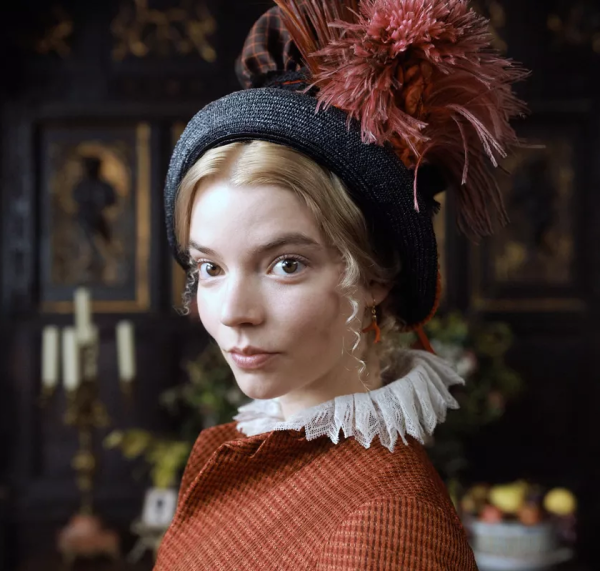![]() BY DAN TABOR FILM CRITIC It’s hard to believe Anya Taylor-Joy has only been acting for six years. After being “discovered” by a modeling scout while walking her dog, she effortlessly made the jump to acting, quickly landing her first starring role in the excellent gothic coming of age fairy tale, The Witch. Born in Miami, the youngest of six children, Anya spent the bulk of her childhood shuttling between Argentina and England, before eventually settling in New York at 16 to pursue acting full time. Since then, she has worked with such directors as Robert Eggers, Edgar Wright and M. Night Shyamalan, making name for herself as one indie film’s most sought-after young actors, with a penchant for picking interesting and thought-provoking projects.
BY DAN TABOR FILM CRITIC It’s hard to believe Anya Taylor-Joy has only been acting for six years. After being “discovered” by a modeling scout while walking her dog, she effortlessly made the jump to acting, quickly landing her first starring role in the excellent gothic coming of age fairy tale, The Witch. Born in Miami, the youngest of six children, Anya spent the bulk of her childhood shuttling between Argentina and England, before eventually settling in New York at 16 to pursue acting full time. Since then, she has worked with such directors as Robert Eggers, Edgar Wright and M. Night Shyamalan, making name for herself as one indie film’s most sought-after young actors, with a penchant for picking interesting and thought-provoking projects.
I got a few moments to chat with Anya Taylor-Joy who was in town promoting her latest, the whip-smart take on Jane Austen’s Emma, which opens in theaters tomorrow. Photographer Autumn de Wilde’s feature length directorial debut is a new take on the classic that has a very contemporary feel despite its lush period-perfect 19th Century setting, thanks in large measure to Anya’s indelible take on the 21-year-old matchmaker. With a supporting cast that includes Johnny Flynn, Bill Nighy, Mia Goth and Josh O’Connor, Taylor-Joy brings her impressive comedy chops to bear as she breathes new life into Jane Austen’s dusty period piece.
PHAWKER: So, this film was just gorgeous to behold and I love the contemporary tone of the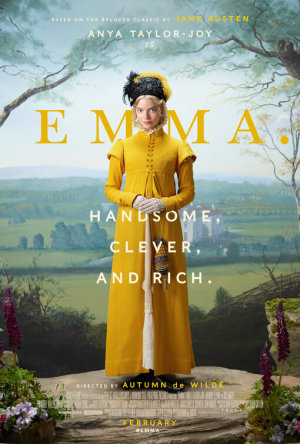 acting embedded in this lush sort of period setting. I’m given. This being Autumn’s first feature. What was the elevator pitch that got you on board?
acting embedded in this lush sort of period setting. I’m given. This being Autumn’s first feature. What was the elevator pitch that got you on board?
ANYA TAYLOR-JOY: Working Title Films offered me the job and then said, please meet with the director who was Autumn, and we went out for dinner. Within the space of five minutes we were in love with each other and we told each other our entire life stories. Then we went like vintage furniture shopping for like six hours and then we haven’t really left each other’s side since. It was one of those instant connections with another human being where you’re like, how have I lived 23 years without you in my life? But she, she came with this incredible box that she had handmade and it was very ornate and elaborate and in it just so lovingly, were all of these different, cutouts of people in period gear and photographs of the actors she wanted to cast. She just had this whole collage thing going on that really speaks to her as an artist. We were just on the same page. I was like, I want to play Emma if I can play her the way that Jane Austen wrote her. Which is I’ve written a character that no one but myself, will much like, and at the beginning of the film I think you can agree Emma’s pretty, you know, shakeable I think is the correct word. I wanted that because I think she’s genuinely got a good heart, but there’s no journey if she’s consistently charming and wonderful, you know, there, there has to be a movement towards something
PHAWKER: Exactly, we’re not on team Emma when the film starts, but then you, you’ve got to kind of win us over and show Emma’s trajectory and growth as a person. She thinks she’s wise, she thinks she’s clever, but she learns that she isn’t, but then she finds out how to be and by the end she’s like a totally different person and we as an audience have gone on that journey with her.
ANYA TAYLOR-JOY: Yeah. She’s a totally different person in terms of her humility, I will say that this isn’t the Taming Of The Shrew. Emma is still all of the things that people would find delightful and wickedly funny about her because she is, she is slightly wicked. But in a good way. I think she’s almost like the first antihero, the first female antihero and I love that because it’s just so much more interesting. I’ve always said that I’m drawn by characters that are 3-D and real, and that involves messiness. That involves not always being perfect, that involves messing up and making mistakes and being able to grow from that. So yeah, I think, I think Emma has those things.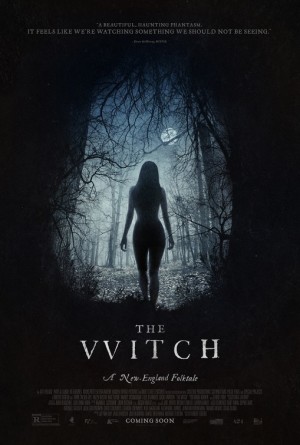
PHAWKER: That goes right into my next question. Emma is much more comedic than the more genre-based roles we usually see you in. Comedy is notoriously a tough nut to crack, but you’re pretty hilarious here. Were you worried about that at all and was there anything you did differently approaching the role?
ANYA TAYLOR-JOY: I never set out to make a career for myself in horror. It just happened that way. The roles were there, the scripts were there and I went for it, because I’d be crazy not to. But I will say my first day of rehearsals I was definitely intimidated, because I walked into a room full of my heroes only to be told that I was leading the ship and I had to hold everything up. That made me nervous. But at the same time, I’ve always just thought if you just throw yourself at something, if you don’t take yourself too seriously, and if you’re willing to learn and understand, then that’s probably the way it’s gonna work out best, if that makes sense. So, I just kind of went for it and I got positive reinforcement from my castmates. Like we were laughing the whole time on set and there was a real atmosphere of try anything. And if it doesn’t work, we won’t think that you’re bad, but if it does work, we will endlessly tell you that was a brilliant move. It was very, very supportive.
PHAWKER: So, what’s your favorite Jane Austen adaptation?
ANYA TAYLOR-JOY: Clueless. I mean, I’m not allowed to say my own movie. [laughs] ButClueless. I haven’t seen the other ones. I have to say that. They hadn’t crossed into my life before I made the film. Once I accepted the role, I definitely wasn’t going to psych myself out by watching somebody else’s interpretation. But I think Clueless is fabulous because it really understands that idea of combining youth, privilege, boredom and then like a small society, AKA high school. Like it very easily translates. I think Alicia was brilliant as Cher. I love that performance.
PHAWKER: Well, that’s funny because of the way I described Emma to my one friend who was like, ‘I don’t know if I want to see this’ was, ‘it’s like A24 adapted Clueless into a period film.’ It’s got that same sort of contemporary energy and the humor is whip smart. So that definitely comes across in your take.
ANYA TAYLOR-JOY: Thank you, I love the way you just described that. I might take that.
PHAWKER: At the risk of revealing spoilers in a 200-year-old book, the film is very much different than the book, especially in the ending where you’re the one that goes to Mr. Martin at the end rather than Mr. Knightley. How did that sort of come about? And I think it empowers Emma a bit more than previous iterations.
ANYA TAYLOR-JOY: Yeah. I think it’s important for Emma to take responsibility and very literal responsibility. There are certain motifs or jokes that we set up at the very beginning of the movie that you have to wait until the end to for it to really pay off, you have to see an hour and a half of Emma hating people talking loudly and hating when they clutter teacup and not being able to stand dirt for you to understand the significance of Emma walking into Robert Martin’s farm. Like you don’t understand that without having seen the rest of it. I think it’s a useful tool to see how she has humbled herself. The thing is it’s very easy now with hindsight to go, oh she’s a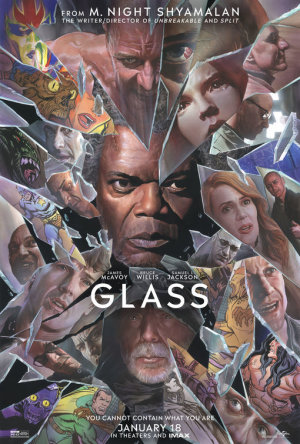 snob and she believes in the class system and it’s like she doesn’t know anything different.
snob and she believes in the class system and it’s like she doesn’t know anything different.
That’s just the way it was at that time. It’s satirizing class, but it’s also allowing you to go, ‘oh, okay wait, this is when she learns that good people are more important than wealthy people.’ It doesn’t matter how wealthy they are. Are they a good person and do they deserve, your, do they deserve your love in that way? I think she needed to show that through those actions.
PHAWKER: And I think that would have been something Austen would have liked to put in, but maybe she couldn’t in her time. That’s very forward and women maybe didn’t do that in the time period. That’s the other sort of piece of this is this was also written almost like 200 years ago.
ANYA TAYLOR-JOY: Which is crazy to me, because I mean 200 years to me doesn’t sound like that long of a time. I’ve always thought that period films, people must approach them as if they’re sci-fi. ‘Oh, like back in those days when people wore corsets’ and I’m like, ‘I would’ve had to wear a corset 200 years ago that’s no time at all.’ I think Austen did something incredible with Emma where, within her character, she found a very intelligent loophole. In a society that has not afforded women any agency, this character has found a way to have agency and has found a way to be mistress of her own home.
PHAWKER: Yeah. I love you when you’re talking to Mr. Knightley (Johnny Flynn) and you say ‘If I were to marry then I would give up what I have and leave my father,’ and he compromises and agrees to live with Emma.
ANYA TAYLOR-JOY: Well, it’s wonderful and I think it’s a credit to Johnny’s performance really. Because when we were doing that scene, there’s no hesitation from him, which I love. There’s just, you know, my father will never leave. Yeah, you’re right. Okay. I’ll come here. Really? Are you sure? Yeah, no, sure. I’ll just come over and, and essentially live the life that he’s already been living. It’s something that I find so romantic about the book is that Mr. Knightley walks to Emma’s house every evening to spend time with her and her father. And I mean he, he’s probably upset about it. Where is he going to get the walk now? The man loves to walk.
PHAWKER: Speaking of scenes with Johnny, I heard that when your nose starts bleeding in the film that was real. How does that even happen?
ANYA TAYLOR-JOY: Yeah. I don’t know. It was one of the weirdest situations of my life. I mean, I can’t explain it, but it was magic. So it was written into the script. It was always supposed to happen and the plan was to shoot Johnny’s coverage and then shoot mine and add some fake blood and then just move on. Then we’re doing my coverage right before, you know, we’re going to pause and put the fake blood and then my nose just starts bleeding. It goes exactly where Austen wanted it to go and Johnny’s freaking out and Autumn’s freaking out and everyone’s like, what do we do? I’m like, you keep rolling! This is amazing. I have no concept of how it happened. But, it makes me like really morbidly proud that that is my real blood on screen.
PHAWKER: That’s crazy. I’ve read that you’d like to make playlists for your characters, it’s something you do as part of your process. The Witch is one of my all-time favorite films, can you share your playlist for that film in particular?
ANYA TAYLOR-JOY: I listened to Dan Romer’s Beasts of the Southern Wild a LOT. I listened to that whole soundtrack so many times. That was my soundtrack, but at the time, I am not pretending I know what acting is now, but now I’ve made a couple of movies, but at that point I hadn’t made anything. I did know that music was such a big part of characters for me. ButBeasts of the Southern Wild, a lot, in particular “I Think I Broke Something.”
PHAWKER: So being from Philly, and being an M. Night fan, I have to ask about your 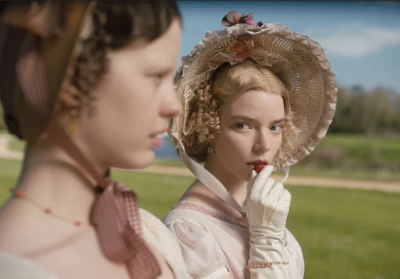 character Casey Cooke from Split and Glass. At the end of Glass we just kind of leave her in 30thstreet station….
character Casey Cooke from Split and Glass. At the end of Glass we just kind of leave her in 30thstreet station….
ANYA TAYLOR-JOY: I love that station.
PHAWKER: I was wondering if you knew if she would be coming back in any time soon?
ANYA TAYLOR-JOY: There’s no plan that I’ve heard of as of yet. That being said, I’ve learned one thing with Sir Night and that’s that you just don’t know. So you just keep yourself open to anything and I would of course be open to playing Casey again. I love that character and I love Night and I love Philadelphia. I genuinely adored my time living here and I always say it’s like my favorite city in the States.
PHAWKER: Finally, I can’t wait for The Northman, which will reunite you with Robert Eggers (The Witch, The Lighthouse), when do you begin shooting that?
ANYA TAYLOR-JOY: I’m going to start filming quite soon, which will be really fun. Robert and his wife, well actually everyone that made The Witch, we haven’t separated since making that film, like we are all very much a family unit and we’re very involved in each other’s lives. I’m so excited to get back on set with him, because I think something really special happens when we get to work together and that relationship is one that I’ve been missing. So I’m really excited to go back there. I wanted it to be in The Lighthouse, but there was no role for me.
PHAWKER: For a hot minute, I almost thought you would cameo as the mermaid.
ANYA TAYLOR-JOY: Yeah. Robert told me there was a mermaid and then he told me what the mermaid did and he was like, you’re not playing that role. I was like,’OK, fair, I understand that.’ I understand that choice. I’ll take that. [laughs]

